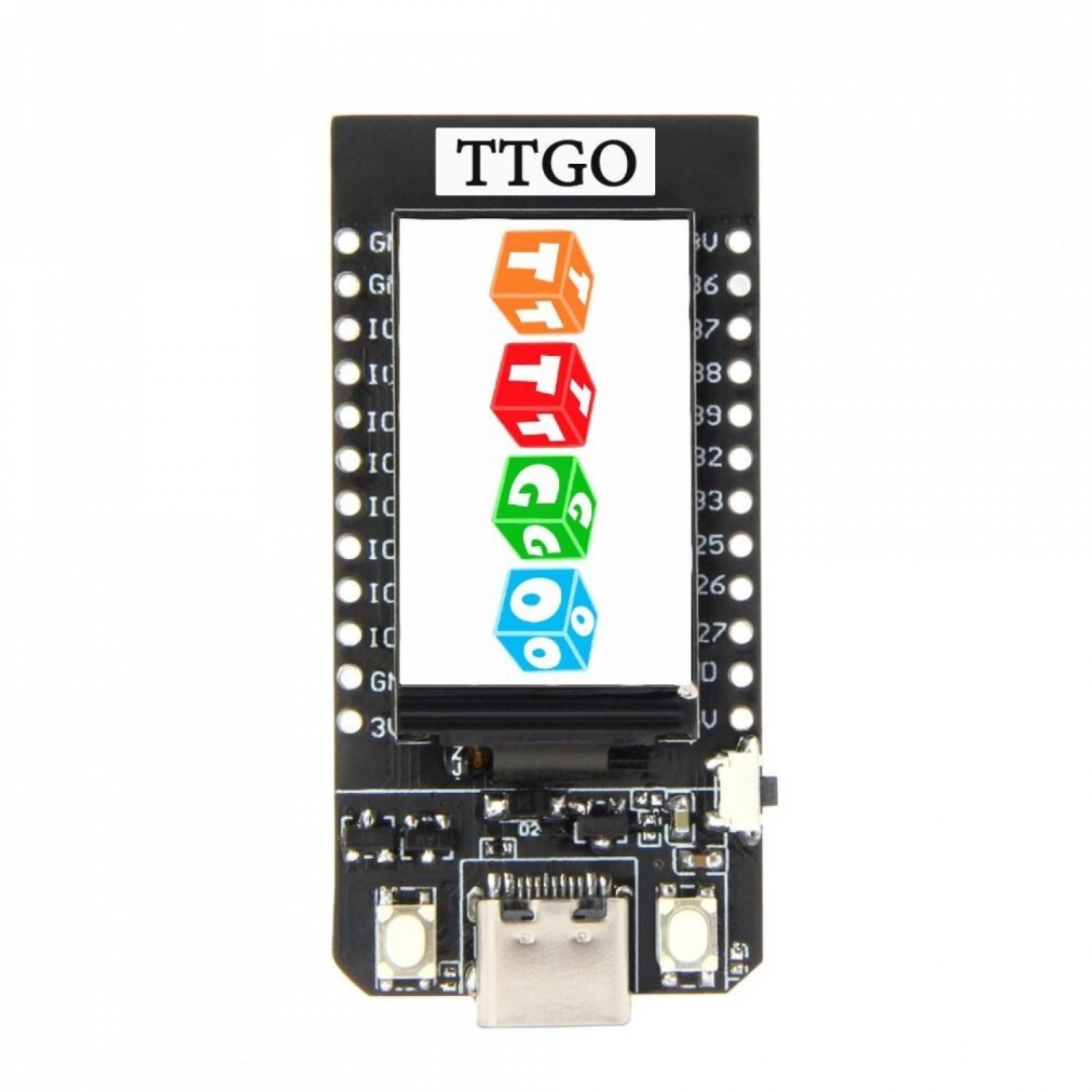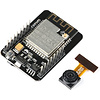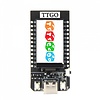
Ship to all EU countries
Art: AA700EAN: 8720828223925
TTGO T-Display V1.1 ESP32 - with 1.14 inch TFT Display (OT8871)
Show all:
ESP32,Microcontrollers
Would you like to order large quantities of this product or do you need a quote to order within your organization? Then request a quote.
REQUEST QUOTEThank you for your request.
You will receive the quote in your mailbox within a few minutes.
You will receive the quote in your mailbox within a few minutes.
Ship to all EU countries
Ordered on working days before 3:00 PM = shipped the same day.
30 days cooling-off period
1 jaar garantie
Description
The TTGO T-Display, manufactured by LilyGO, is a compact microcontroller that integrates the powerful ESP32 chip with a built-in 1.14 inch TFT display. Programmable via a convenient USB to serial converter, this board provides an easy entry point to development, similar to using Arduino. Power and programming are made possible via the USB-C connection (USB-C cable not included).
Technical specifications TTGO T-Display:
ESP32 chip (dual-core processor at 240Mhz)
Flash memory of 4MB
SRAM of 520KB
Integrated Wi-Fi
Integrated Bluetooth
1.14 inch (240x135) TFT (IPS) display (ST7789)
GPIO Voltage: 3.3V*
Power supply voltage: 3.3V DC or 5V DC
Built-in push button for interaction
Charging circuit for Li-ion/Li-Po batteries: TP4054 chip can up to 500mA charge
USB to serial converter: CP2104 or CH9102F (drivers)
Battery connector: 2p Molex Picoblade
PCB dimensions: 51.4 x 25.2mm
What's in the box:
1x TTGO T-Display V1.1 board
1x Battery cable: 2p Molex Picoblade
1x Set of male headers
To start programming in the Arduino IDE, simply select the 'ESP32 Dev Module' in the board manager.
Technical specifications TTGO T-Display:
ESP32 chip (dual-core processor at 240Mhz)
Flash memory of 4MB
SRAM of 520KB
Integrated Wi-Fi
Integrated Bluetooth
1.14 inch (240x135) TFT (IPS) display (ST7789)
GPIO Voltage: 3.3V*
Power supply voltage: 3.3V DC or 5V DC
Built-in push button for interaction
Charging circuit for Li-ion/Li-Po batteries: TP4054 chip can up to 500mA charge
USB to serial converter: CP2104 or CH9102F (drivers)
Battery connector: 2p Molex Picoblade
PCB dimensions: 51.4 x 25.2mm
What's in the box:
1x TTGO T-Display V1.1 board
1x Battery cable: 2p Molex Picoblade
1x Set of male headers
To start programming in the Arduino IDE, simply select the 'ESP32 Dev Module' in the board manager.
Reviews
0/10
No reviews found
Add your reviewAlso interesting for you:
Kies je taal / Choose your language:
By using our website, you agree to the usage of cookies to help us make this website better.
Hide this messageMore on cookies »


















